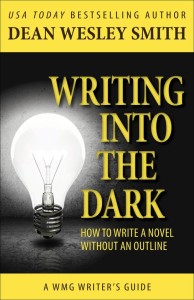 For more than a year, I’ve been meaning to write the story of Dafydd taking Paul home to meet the family. Late last year, I started on it with the overly optimistic idea of making it a Christmas story. Maybe if I’d started it in September or October…
For more than a year, I’ve been meaning to write the story of Dafydd taking Paul home to meet the family. Late last year, I started on it with the overly optimistic idea of making it a Christmas story. Maybe if I’d started it in September or October…
Anyway, when I realized it was too close to Christmas, I quickly revised it as a Spring Equinox story and continued on. Right into a block.
The story was going along great. I had fun describing Dafydd’s rather large family and their reaction to a vampire boyfriend in their midst. I had an idea for a short case for them to solve and then realized I’d gone down a dead end.
This doesn’t happen to me often. Usually, if I hit a tough point, I step away from the story for a day and come back to inspiration. Not this time. More than a week later, I was still stuck, so I wrote a chapter of the next novel to try to break the block. Still nothing.
As I wrote earlier, I’ve been using the method Dean Wesley Smith detailed in his book [easyazon_link identifier=”1561466336″ locale=”US” tag=”warloc-20″]Writing Into the Dark[/easyazon_link], so what were his words of wisdom? Go back about a thousand words and take a new run at the trouble spot. Nope, that didn’t work.
I finally decided to re-read the entire story. I did a bit of light editing along the way, and as I neared the end, I found where I had taken a wrong turn. However, I was still lacking in inspiration.
Without revealing too many spoilers, the case involves an angry ghost, and my original idea of his motivation was just horrible. (No, I will not share it.)
I finally broke the block with a bit of logical thinking.
- What makes ghosts angry? Usually someone wronged them or someone murdered them. My ghost had been murdered, but that didn’t work as the motivation here.
- I thought bigger. What if it wasn’t something that happened to the ghost, but some historical event that had angered the ghost? That would work with the events of the case.
- I researched major events in San Francisco in the 70s and finally found something that worked. Added bonus? It ties nicely in with Dafydd’s personality and motivation
A bit of logic and research wins the day! Logical thinking can get in the way of creative thinking, so I’m intending to use this approach with caution. However, this time it got me out of a nasty block.
Most readers will totally think I set it all up, but you know otherwise. I hope you enjoy it when I publish the story. If all goes well, look for it in a month or so.
Want to be a beta reader? I’d love to have you. Just email me and let me know. My email is on the About Me page.
Image credit: Flickr user SEO under a Creative Commons license

 Have you ever considered entering a writing contest? I looked at several this year, especially ones with no entry fee. However, I never entered them because I paid careful attention to the terms and conditions, and I didn’t like what I saw.
Have you ever considered entering a writing contest? I looked at several this year, especially ones with no entry fee. However, I never entered them because I paid careful attention to the terms and conditions, and I didn’t like what I saw. Earlier this year I read
Earlier this year I read